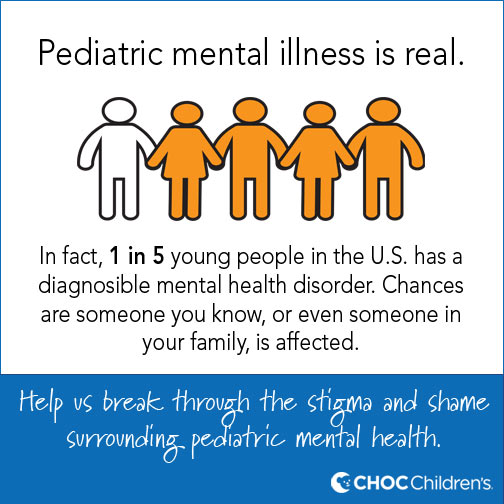Something doesn’t have to be “wrong” to seek help

CHOC Children’s
“What happened?” they ask me as their face turns to a look of pity; this is usually the response I receive when I tell someone that I am in therapy.
There is this widespread assumption throughout our society that in order for someone to be in therapy something must be “wrong.”
These responses are not only naive, they actually perpetuate harmful stereotypes about mental health and support the stigma surrounding it.
We can’t expect a change if we don’t make an effort and one major change we can make is to rethink how we view therapy.
First and foremost let’s talk about asking for help. As a culture, we don’t like to ask for help. There is the expectation that you should either already know how to do it or be able to figure it out on your own.
Trust me I understand how uncomfortable asking for help can be and it’s still something I struggle with.
There’s this mentality that’s rarely discussed but we are all aware
of. It’s the idea that we are strong enough to handle it alone.
Think about it for a second, if you feel you are strong enough to handle whatever it is on your own, then that implies others are weak for asking or receiving help (remember the look of pity I frequently get).
In reality, none of us can make it through life alone. We all need support for different struggles we face throughout our lives. Sure there might be something you could make it through alone, but being in therapy allows you to accomplish it more comfortably rather than believing
you have to do it on your own and white-knuckling the entire time.
Therapy can make us more comfortable in our own lives, but we aren’t able to experience this comfort if we think we are weak for asking for help.
Through therapy, I have learned that the ways I thought were helping me deal with my anxiety, were actually feeding it. I’m aware not everyone will have a disorder, but we all struggle with mental health. Everyone gets anxious, depressed and experiences trauma, so if there was a way we could learn skills to make ourselves more comfortable, why not utilize it?
There’s strength in admitting that you don’t have all the answers and are actively looking for support to help you through.
Now I am aware that due to costs and insurance, therapy can become a luxury, and as much as I wish that wasn’t the case I can’t ignore the facts. But there are other options beyond the traditional one-on-one talk therapy if that is not possible for you.
Support groups are a main resource to use if therapy is not feasible. While some of them can be more niche and might not be applicable, there truly are support groups for almost everything and they are usually free of cost.
The Social Work Department offers support groups for those more niche circumstances like the loss of an immediate family member or children who are adopted, but there are also groups for more frequent struggles like stress and anxiety to body image and sobriety.
While talking to a group of peers about something so personal can be incredibly intimidating (I was originally terrified of group therapy), there two crucial things to know before you cast it aside.
First is confidentiality. In any therapy setting there’s always confidentiality. In a group setting, this means that your participation in the group is confidential and you don’t discuss any one in the group or their struggles outside.
Second, while it is very scary to open up, the whole objective of a support group is the other members are struggling with similar issues making them able to provide advice as well as a sense of comfort knowing that you are not alone in your struggle.
So instead of just posting on Instagram some Pinterest quote you found for National Mental Health Day, take the time to consider if you might benefit from reaching out for help. Something doesn’t have to be “wrong” for you to receive help.
Just remember you are not weak for asking for help.






































